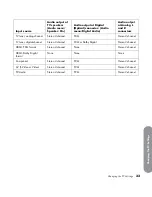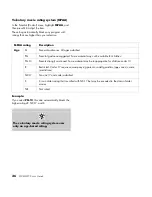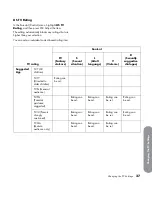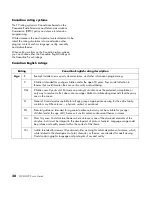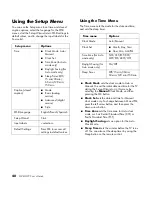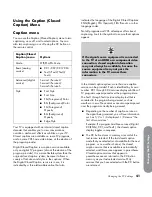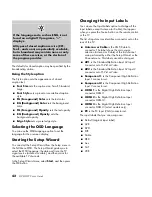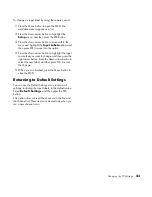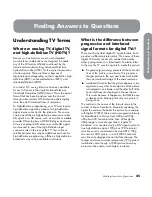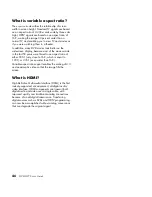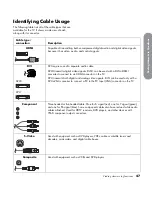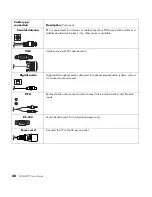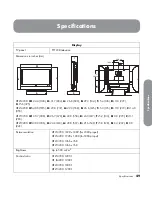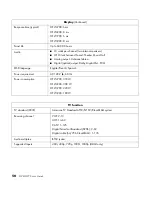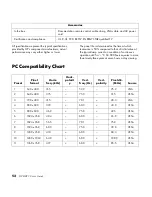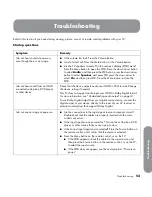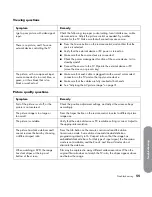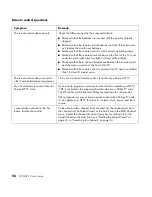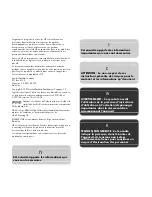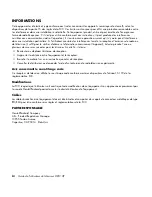
46
HP HDTV User’s Guide
What is variable aspect ratio?
The
aspect ratio
describes the relationship of screen
width to screen height. Standard TV signals are based
on an aspect ratio of 4:3 (four units wide by three units
high). HDTV signals are based on an aspect ratio of
16:9, making the image 33 percent wider than a
normal TV, and enabling you to view TV and movies as
if you were watching them in a theater.
In addition, many DVD movies look better on the
widescreen display, because most of the movies made
in the last 50 years were filmed in an aspect ratio of
either 1.85:1 (very close to 16:9, which is equal to
1.78:1) or 2.35:1 (even wider than 16:9).
Variable aspect ratio support enables the scaling of 4:3
and anamorphic video so that the image fills the
screen.
What is HDMI?
High-Definition Multimedia Interface (HDMI) is the first
industry-supported, uncompressed, all-digital audio/
video interface. HDMI components can transmit both
digital audio and video over a single cable, with
improved quality over traditional analog connections
because of an all-digital transmission. Transferring
digital sources such as DVDs and HDTV programming
can now be accomplished without analog conversions
that can degrade the original signal.


